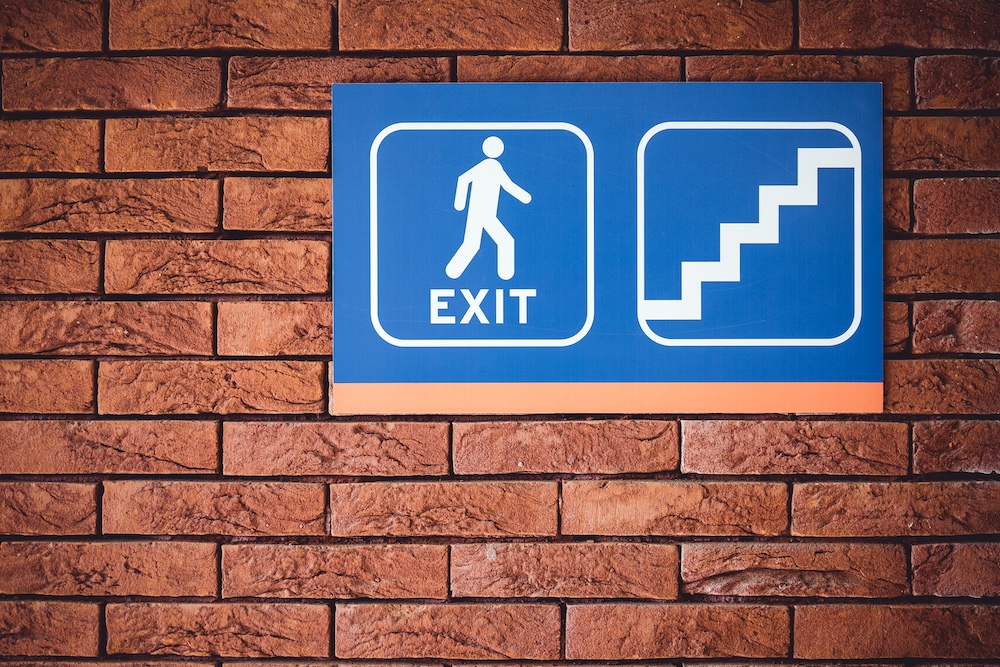Know this, first and foremost: it’s expensive.
Grading on a curve, it’s not as expensive as other places around the world. Take the United Kingdom, for example, where “Stamp Duty,” which is a tax on the transfer of property is a whopping 12% on values over £1.5 million. How this compares to Canada, we’ll get to in a moment.
But suffice it to say, buying and selling real estate in Ontario is expensive. I say this both as an individual who has bought and sold many properties, both for personal use and for investment, but also as a real estate broker who is, perhaps, one of the few that will admit – yeah, the costs associated with buying and selling real estate are substantial.
Looking for real estate advice that isn’t sugar-coated? Check out our podcast, The Last Honest Realtor, right here or anywhere else you get your podcasts!
Let’s start with the basics: land transfer tax and real estate fees. The good news is, the buyer pays one, and the seller pays the other, and never do you pay both.
Well, wait, there’s a caveat. If you’re buying and selling, then you pay both. But let’s look at these one at a time…
Land Transfer Tax
If you happen to live in the City of Toronto, congratulations, you get to pay this tax twice.
The government of Ontario introduced “land transfer tax” in 1974, but with housing prices where they were at the time, it was never intended to have the impact that it does in 2025. After all, the first “bracket” in the sliding scale of taxation back in 1974 was from $0 to $55,000, but that bracket still exists today, over a half-century later! This goes to show how negligible the tax was intended to be in 1974.
The mayor of the City of Toronto in 2008, David Miller, introduced Toronto’s own land transfer tax after multiple votes and failed attempts at City Hall, but the introduction of this tax effectively doubled the existing tax burden on Toronto home buyers.
Both taxes work on a sliding scale, depending on the purchase price.
Let’s use the example of a $1,200,000 home in Toronto.
Each of the provincial and municipal portions would be $20,475, for a total of $40,950 payable.
Where the sliding scale differs is when it comes to higher-priced homes, since Toronto Mayor, Olivia Chow, decided to increase the tax on “luxury” homes.
For a $5,000,000 purchase in Toronto, the respective taxes would be $111,475 for the province and $141,475 for the City of Toronto.
While I know that few will sympathize with buyers who can afford $5,000,000 homes, suffice it to say, $252,950 is a lot to pay the government simply because you purchased a home. And in our U.K. example, a £5 Million purchase (which doesn’t go nearly as far over there as it does here), would result in a whopping £513,750 payment of “Stamp Duty,” and that’s only if you don’t already own a property, and only if you’ve never owned before, otherwise, the tax is even higher.
Speak of “never having owned a property before,” both the province of Ontario and the City of Toronto will rebate a small portion, $4,475 and $4,000 respectively, for first-time home buyers.
If you’re a first-time buyer looking at a $550,000 condo in downtown Toronto, then your total land transfer tax would be $14,950, but you’d be rebated back $8,475, so you’d only be paying $6,475.
Now, if you’re a first-time buyer looking at a $550,000 house in Niagara Falls, then you don’t have to pay the Toronto land transfer tax – only the Ontario portion, which is $7,475, minus the $4,000 first-time buyer rebate, for a total of $3,475.
Wow, we’ve come a long way from a half-million British Pound Sterling!
Online land transfer tax calculators are easy to find.
In fact, our Buyer Calculator includes a section about Land Transfer Tax. You can check it out right here.
Real Estate Fees
Commonly referred to as “commissions,” these are the fees that a seller would pay to an agent, licensed with the Toronto Regional Real Estate Board or another association, in order to list the property and successfully sell it.
Fee structures differ tremendously depending on the real estate agent, real estate brokerage, and the business model of both.
There are traditional full-service brokerages on the one hand, and very basic, almost virtual brokerages on the other hand. It’s up to the seller to decide which is right for his or her home sale, and what the associated fee should look like.
One very important item to note: a typical real estate listing, posted on the Multiple Listing Service, will offer an inducement, or “cooperating brokerage commission,” to the buyer agent. Some see this as the seller paying both the listing agent and the buyer agent, whereas others see this as the seller hiring the listing agent, and agreeing to pay half of the agreed upon fee to an agent who brings a successful buyer.
For example, if the seller and agent agreed to a 6.0% listing fee, the contract would probably include a provision to pay a cooperating brokerage 3.0% from that 6.0% fee.
Do you really need a buyer’s agent? Read our post right here to find out.
It would be extremely anti-competitive to suggest there is such a thing as a “standard fee,” but I will say that the most common fee in the 1970’s and 1980’s (before my time…) was, in fact, 6.0%, and the most common fee when I began in the business in 2004 was 5.0%.
Who you choose to help buy or sell your next home should come down to much more than just commission rate. Learn more about the ins and outs of hiring (and firing!) agents with these posts next:
- What Does Self-Representation Mean in Real Estate?
- Why Hiring Your Friend to Sell Your Home Might Be a Bad Idea
- Can You Fire Your Realtor if it’s Not Working Out?
Today, there are discount brokerages that will list for a fixed rate of a few hundred dollars, just as there are traditional, full-service brokerages that will still charge 6.0%. And of course, there’s HST on top of that, because the government wants to get in on the action as well!
Far be it for me to say, because I work for a family-owned brokerage with a traditional, full-service brokerage model, but I believe “you get what you pay for.” Whether you’re contemplating hiring a broker for 5% or for 2.75%, make sure you understand who that agent is, how long they’ve been selling real estate, where they stand in the industry, what their qualifications are, and get some examples of their property marketing – everything from print, to social media, to online assets. Ask them how to improve the value and saleability of your home, through renovations and repairs, and ensure you discuss property staging, which we feel is essential with any listing.
Do you really need staging to sell your home? Find out here.
And for a closer look at some of TRG’s staging success stories, check out these case studies:
- TRG Staging Case Study: Student Rental to Starter Home
- TRG Staging Case Study: The Starter Home
- TRG Staging Case Study: The Big House
Legal Fees
Lawyers are similar to real estate agents in that there are some with more experience, others with less, some more qualified, others not as much. And when it comes to geography, I would offer that just as you wouldn’t want your cousin, who’s a real estate agent in Thunder Bay, to represent you on the purchase of your downtown Toronto condo, you also shouldn’t have your dad’s friend, who’s a lawyer in Windsor, to help facilitate the transfer of your purchase or sale.
Legal fees, just like real estate fees, can fluctuate dramatically. There are likely discount legal professionals who will charge as little as $1,000, and then top-tier firms that might charge $5,000 or more. It’s up to the buyer or seller to decide what level of service they require, but more importantly, what level of experience, customer service, and communication they require from the individual or team facilitating the closing of their purchase or sale.
We’re not real estate lawyers, but if your real estate questions border on the legal side of things, here are a few blog posts you might find interesting:
- What Does SC Escape Clause Mean in Real Estate?
- How to Sell Your Home During a Divorce or Separation
- Should You Sell Your Home Now or Leave it In Your Will?
Title Insurance
The cost of title insurance, compared to land transfer tax or real estate fees, is quite nominal.
Depending on the property, policy, and provider, the cost could be as low as $250 and as much as $800.
Regardless, it’s essential in today’s world!
Several years ago, we were inundated with media coverage on real estate fraud, where properties were being sold by individuals who didn’t own them, and unfortunately, there’s no recourse to the legal owner without title insurance.
Discover the truth about title search with this post right here.
Closing Adjustments
This isn’t so much a “cost,” but rather an amount of money that would be taken from your pocket, as the buyer, for any amounts pre-paid by the property seller.
Consider that property taxes are typically paid in six installments during the year. If a seller has pre-paid for March, April, and May, but the property is sold and closes on April 9th, then the lawyers will adjust for the pre-paid amount, and claw this back from the buyer upon closing.
Then think about utilities: gas, electricity, water, et al. For amounts charged in advance of services, the seller’s lawyer would, again, claw this back upon closing. For amounts to be charged after the closing date, the buyer’s lawyer would insist on a “holdback” of funds to be dispersed appropriately once the bills have been received.
These adjustments can run anywhere from a few hundred dollars to thousands in the case of pre-paid taxes and utilities for pricier homes.
Read this post next to learn about more closing costs you should be aware of.
Mortgage Discharge Fees
In situations where a property owner is selling a home with an existing mortgage but not transferring that mortgage over to a new purchase (ie. you’re selling here in Toronto to move to France), then there is a cost associated with discharging the mortgage.
Some have called this “unfair,” but when you sign a document accepting a five-year mortgage term, that’s a contract! To sell your home after two years and say, “Thanks, Bank, but we don’t need this anymore,” is breaking the terms of the contract.
The most common “break fee” is three months’ interest Consider the purchase of a $1,200,000 home where the mortgage payments are $4,559.55 per month (this assumes 20% down, 30-year amortization, and 3.99% rate). The monthly payments of $4,559.55 consist of around $1,419 in principal and $3,410 in interest during the first year. For the borrower to break this mortgage, three months’ of interest would be $10,230.
Obviously, when interest rates are lower and the mortgage amount isn’t as high, the interest penalty is much smaller. For a $500,000 purchase with 30% down, 30-year amortization, and, say, only a 2.49% interest rate, the monthly payments are $1,378.77, of which around $715 per month is interest. This means the discharge penalty would only be $2,145.
In situations where mortgage rates have declined, the cost can be more substantial.
Consider a situation where a buyer takes a five-year, fixed-rate mortgage of 4.99%, and two years later, mortgage rates have dropped considerably and now a five-year, fixed-rate mortgage is 3.79%. For the bank to give up that loan, it means they’ll lend the money to somebody else at 2.79% instead of the 4.99% that was contracted to the original buyer. For this, they charge what’s called an “interest rate differential,” which can be into the tens of thousands of dollars.
Many banks will take the higher of the three months’ interest or interest rate differential. This is why you want to know you break fee in advance of taking on a mortgage.
Do you have more mortgage questions? Here are a few more posts you might find helpful:
- Fixed Rate Vs. Variable Rate Mortgage: A Guide for Home Buyers
- What You Really Need to Know About 30-Year Mortgages in Canada
- How to Choose the Right Type of Mortgage
Moving Expenses
When I moved into my first condo, I did all the moving myself.
It was an absolute nightmare.
I took “car loads” twice per day down to the condo for weeks, and while it saved me the cost of hiring a mover, it was laborious and probably cost me more in the end anyways.
Of course, I bought my furniture new, and had my couch delivered, but most of the other items in my condo were hand-assembled pieces from IKEA, which arrived at my condo via my car trunk.
When I moved into my second condo, I was literally going from King Street to George Street, and the moving truck “arrived” in about four minutes. But this time around, I had far too much to move on my own, plus, I had learned my lesson from the first time!
By the time I moved from my second condo to my house, I not only had the massive moving truck pick up items at my condo, but also at a storage locker, and for good measure, a few items being held in my mother’s garage!
Moving companies can cost $2,000 for small, half-day moves, $25,000 for cross-country moves, and $50,000 for transcontinental moves.
If you’re moving from a condo to a house, or a small house to a larger house, you’re probably looking at $3,000 to $10,000. As with everything else on my list, just remember, “you get what you pay for.”
At the End of the Day…
While there are other costs associated with buying and selling in Ontario (who’s going to set up your surround sound, and do you really think your condo couch will work in your new house?), the costs listed above are the most expensive and most common.
For any questions about real estate fees, real estate taxes, or the cost of your next move, feel free to reach out. We’re always happy to chat.
Looking for more real estate advice? Get in touch by filling out the form on this page, or contact us directly by calling 416.642.2660 or emailing admin@torontorealtygroup.com.

Ready to Get Started?
It all starts with a conversation. Whether buying or selling, TRG can help you achieve your real estate goals. Get in touch with our team today to start the process.








